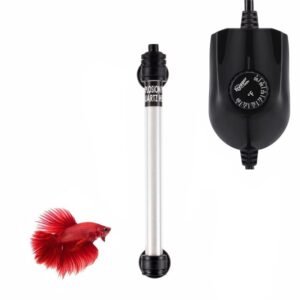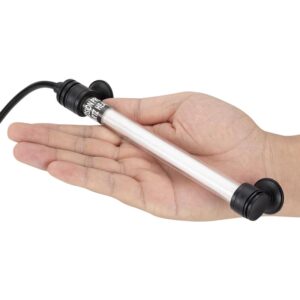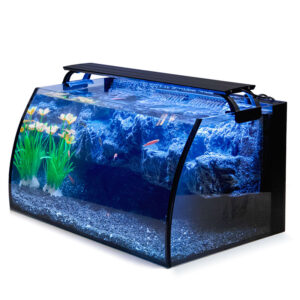What is Normal Betta Behavior
The betta fish is a very popular ornamental fish in the world and is one of the most loved ornamental fish. Betta fish get a lot of attention because of their long fins that float in the water, and because they are naturally aggressive, they are also called fighting fish. The first thing you can do is to observe the behavior of betta to determine their health and emotional state when feeding them. Perhaps you can find the answer you are looking for by reading this article today.
Content Table
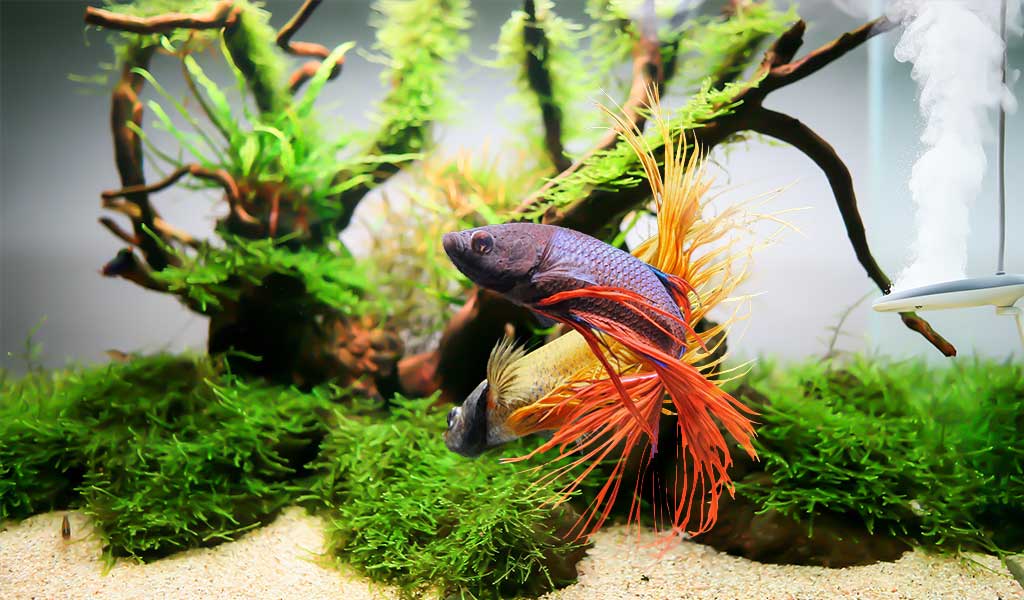
How to judge the health status of betta fish from its appearance
If your betta is sick, examine the coloration of its fins. Healthy bettas have vibrant colors and fins that flow freely. A sick betta, however, will display dull, faded colors, clumped fins, ragged and drooping fins, and stress stripes. It is also likely to have a swollen stomach.
If you have a male betta, make sure that he is not living with other males. Males often fight to the death, and the stress of an unbalanced environment can also lead to death. Also, avoid placing a male betta in a tank with bright colors, other fish, or a betta that resembles another type of fish. Bettas like privacy.
Healthy bettas swim around the tank and float upright. Avoid startling your betta by gently moving your hand toward it. Avoid touching it and stay away from letting it get too excited or startle you. If your betta reacts to your touch, it’s likely healthy. Moreover, if your betta seems uncoordinated and often stays near the bottom of the tank, it’s unhealthy.
Healthy betta fish can live longer. Their scales are vibrant and should not be faded. They should not have discolorations or torn fins. If the scales are pale, they can be a sign of disease or infection. A healthy betta is active and responds to your hand. It will swim around the tank in response to your touch.
Healthy bettas will puff up and retract their gills when threatened by a mirror or another betta. They will do this in response to a threat and will retract their gills once the danger is removed. It’s important to note that the behavior of a healthy betta may change once it becomes used to the conditions at home. This means it may need some time to adjust to the new environment.
Rusty mist is a sign of velvet disease, the fish should be examined. A salt bath and medications are effective treatments for this disease, but it’s essential to treat betta fish as early as possible to prevent a more serious problem. A betta may have an abnormal tumor on its body. If it’s a benign tumor, however, treatment depends on the underlying cause.
Water parameters are essential for betta fish’s overall well-being. Check water parameters if your betta exhibits any symptoms of illness. You might be able to resolve a lot of these problems by performing a 50% water change. You can also test the water’s hardness by using a pH level test. In addition, a water pH level test is important for determining a betta’s water pH.
A betta may also have various colors. The most common colors are black, yellow, blue, clear, and albino. Male bettas are often brighter than females, and the fins can be long or narrow. Some females have smaller fins and duller colors than males. Whether your fish has fins or tail rot depends on how the color is distributed on its body.
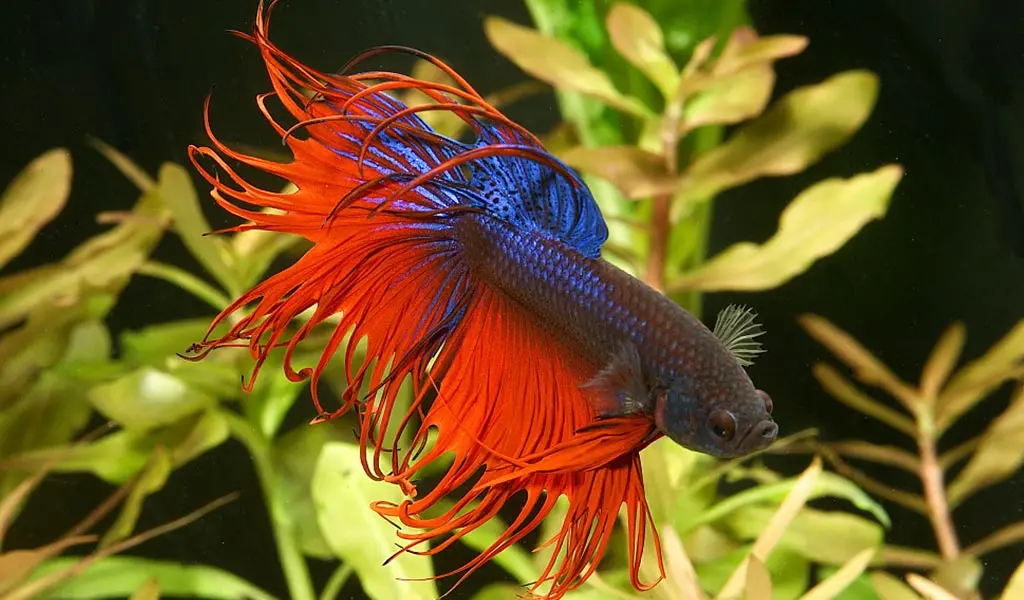
How can I judge the emotional state of a betta fish from its behavior?
One way to tell whether your betta fish is happy or sad is to notice how it behaves. A happy betta will have a humongous appetite. The same is true of a fish that is stressed. Your betta may swim frantically and rub itself against rocks, or crash against the bottom of the tank. It might also refuse to greet you as it normally does. If you notice any of these behaviors, you can check the water temperature and chemistry of your betta fish tank. A betta that is unhappy will show signs that it is unhappy or suffering from a lack of oxygen.
Observe the way your betta swims. If it stays around the floating plants for more than half an hour, this is a good sign that it is not depressed. Otherwise, it may be swimming a lot around the tank. Sometimes, it will stay in one place for an extended period and then move for a short distance. In this case, you’ll want to check its behavior and assess the problem.
Aggression is another sign that your betta is in danger. If your betta fish is aggressive, it will flare its gills to attract attention. Be wary of a fish with a brightly colored chin area, which is usually paler than the rest of its body. It will also display aggression towards its mate. Often, this behavior is misinterpreted by ignorant owners as play or aggression.
When a betta fish is in danger, it is best to take it to the vet as soon as possible. Even though bettas don’t eat other animals, they will kill them for sport. If you let them live in a tank with other animals, it might start to attack them. If you think your betta is in danger, you can take steps to prevent it from doing so.
Observe how your betta interacts with other fish. Does it swim up to the cage to rest? Appear stressed or sluggish? Or does it flail its fins? If they start chasing each other, it’s a good idea to get your betta a new home.
Normal betta fish behavior
A betta’s happy behavior is characterized by several characteristics. First, he will move around in the tank and inspect new items. He will also swim to the surface if you notice him. Second, he’ll look for food. While he doesn’t do this every day, a betta’s happy and healthy behavior is a sign that it’s happy.
In addition to being happy, betta fish may show signs of boredom and stress. A betta fish may react to your presence by flaring its fins or becoming active. Then again, this behavior is normal and should be expected. However, when it gets frustrating, it will start to act more aggressively. If your fish shows signs of stress, it’s probably because they’re unhappy.
Another common behavior in bettas is hiding. Without a hiding spot, a betta may hide in a corner and hide from other fish. If the tank is noisy, a betta may move to an outdoor room and hide there. If he has no hiding place, he may be depressed or lonely. Often, these behaviors are due to the lack of food or a lack of companionship.
While the absence of a bubble nest does not necessarily mean your betta fish is unhappy, it does indicate that it’s lonely or stressed. This is because bettas are often sociable in the wild, and the presence of a bubble nest in its tank is a sign of happiness. As long as your fish is eating and engaging in more healthy behavior, it will not have a problem with its mental state.
Interaction with betta
You can teach a betta to jump out of the water to catch food. During playtime, a betta will try to jump out of the water when it is hungry, and it will probably learn to do the same thing when it’s not. If you’re interested in training your betta to jump out of the water to eat, you can provide it with a small bowl of food every day and reward it with treats at the end of the session.
Another way to gauge your betta’s emotional state is to observe how it interacts with you. If it seems to be stressing you, this may be a sign that it’s feeling scared or stressed. You can even try doodles on the tank or sticky notes. The betta will learn to recognize your name from your voice. This interaction is one way to form a close bond with your betta fish.
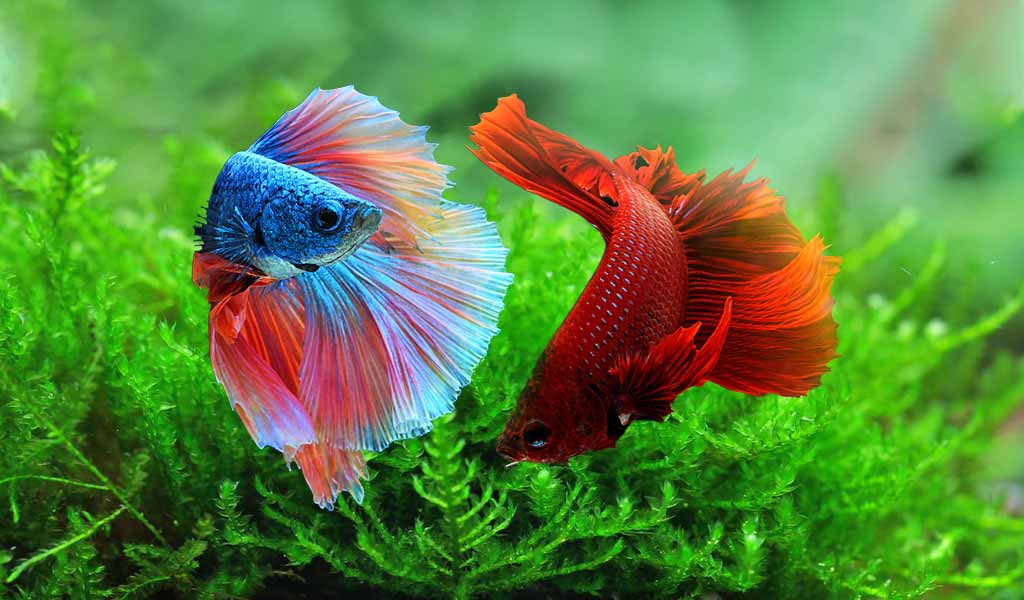
How to bond with your betta fish
Betta fish are highly intelligent creatures with feelings and emotions. They recognize their owners and respond to their presence. While bettas do not display affection or aggression, they do show interest in their owners. When you interact with your betta, he will reciprocate his interest with a positive reaction. You may notice your betta making bubbles on occasion. This is an appropriate reaction, and your fish is likely to respond in kind.
Besides displaying a healthy, active lifestyle, bettas have basic needs that are similar to those of other pets. Insufficient food and water can lead to stress in bettas. Lack of these essentials can lead to illnesses and depression in bettas. Even in small amounts, stress can lead to death, which is the number one cause of fish deaths.
The first step towards bonding with your betta is to observe and learn more about their behavior. While most fish do not display emotion, bettas can be great friends if properly socialized and bonded with their owners. A betta fish can visit you whenever he is happy, stressed, high, sick, or stressed. This requires patience and openness on your part.
You can find more information on betta fish behavior by reading about it on the Internet. Bettas are social animals and tend to be interactive with their owners. However, some behaviors might indicate more serious problems. Their tank conditions don’t require specific aquarium conditions. As long as you follow basic guidelines, bettas are relatively easy to maintain.

